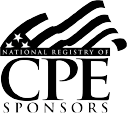In the intricate world of business valuations, information is the lifeblood of accuracy. A meticulously crafted valuation report hinges on the quality and comprehensiveness of the data it encompasses. Just as a building’s foundation determines its stability, the information-gathering process lays the groundwork for a reliable business appraisal.
Gathering information the right way is not merely about accumulating data; it’s about strategically selecting, verifying, and interpreting relevant information. It’s about delving into the company’s financial statements, industry trends, and market dynamics to paint a holistic picture of its worth.
Building Trust and Confidence through Diligent Information Gathering
The value of gathering information the right way extends beyond mere accuracy. It fosters trust and transparency between the appraiser and the client. When information is gathered with diligence and expertise, it instills confidence in the valuation process and its outcomes.
In this blog, we’ll explore the intricacies of information gathering in business valuations, highlighting the techniques, pitfalls, and best practices that ensure the foundation of your appraisal is as solid as the business itself.
10 Essential Questions to Ask: A Data Gathering Checklist
- Relevance Check: Did the questions seek information directly pertinent to the valuation process?
- Information Incorporation: Is it clear that the majority of the gathered information was utilized in determining the valuation outcome?
- Transparency Assessment: Are the key inputs considered in the valuation transparently documented and easily understandable?
- Factual Accuracy: Does the valuation report contain any factual errors or inconsistencies?
- Industry-Specific Inquiries: Did at least some of the questions address your company’s unique circumstances and demonstrate an understanding of your industry and market dynamics?
- Comprehensive Financial Scrutiny: Were questions asked about non-standard accounts in your financial statements, such as “other revenue,” “other expenses,” or “other assets/liabilities?”
- Assumption Validation: Were any assumptions made in the valuation that could have been replaced with readily available facts?
- Outlier Identification: Did the questions delve into “crooked numbers” in your financial statements – figures that deviate significantly from historical trends?
- Thought-Provoking Questions: Did any of the questions prompt you to pause and carefully consider your response, indicating a deeper understanding of your business?
- Unasked Questions: Were there any critical questions that should have been asked but were not included in the process?
Are you looking to pursue a Business Certified Appraiser (BCA) credential? Visit ISBA Learning today. ISBA Learning is the home to our certifications and online courses. The Learning site also includes 100+ learning resources, including express courses, live and on-demand webinars, publications and reports, articles, templates, and worksheets!
Check out these self-paced courses:
- Advanced Financial Statement Analysis for Business Appraisers
- Business Certified Appraiser Certification Program











